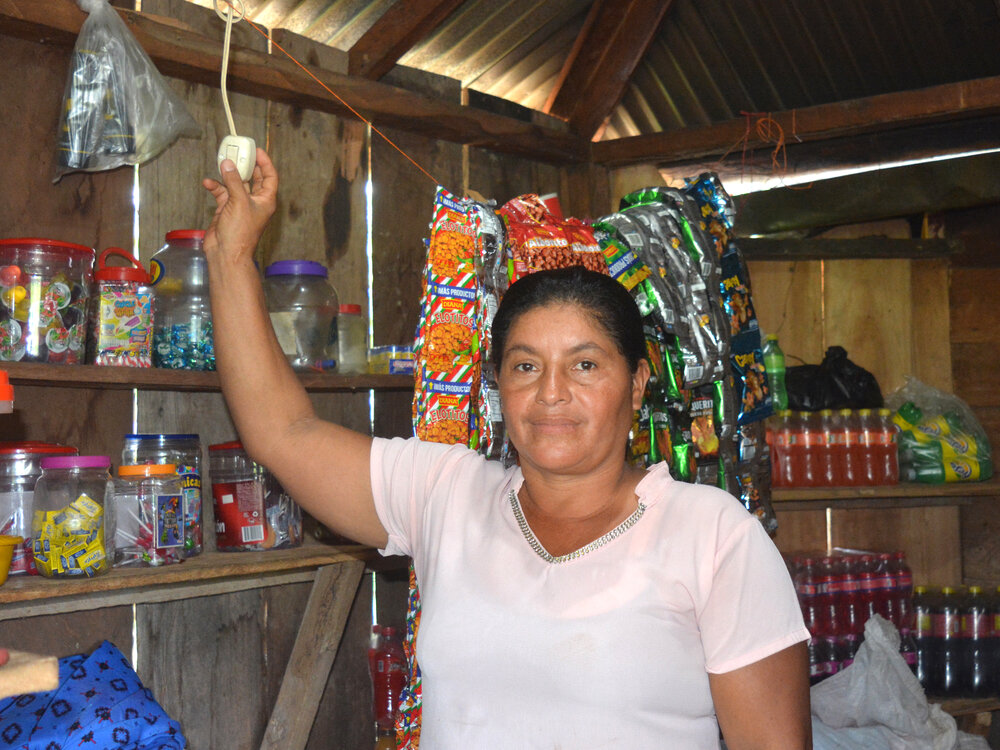3 million Nicaraguans in rural areas will have continuous and sustainable electricity service with CABEI's support

Segments A and B of the National Sustainable Electrification and Renewable Energy Program include advances such as the electrification of 41,682 homes and the construction of 21,629 kilometers of distribution networks.
Managua, March 30th, 2022.- The National Sustainable Electrification and Renewable Energy Program (PNESER Segment A and B), supported by the Central American Bank for Economic Integration (CABEI), which will provide approximately 3 million Nicaraguans with access to continuous, efficient and sustainable electricity service, is making steady progress.
By the end of 2021, a total of 677,255 people in rural areas were enjoying 24-hour energy service; and in isolated areas of the country, where it was not feasible to supply electricity through network extensions, access to this resource was provided through renewable source solutions, covering basic household electricity requirements.
"Electric energy is vital for the economic and social development of countries and, aware of this, CABEI is backing an initiative of this type that also contemplates the expansion of distribution networks, the construction of small hydroelectric plants, studies on generation with renewable sources and the expansion of electrical substations," pointed out CABEI's Executive President, Dr. Dante Mossi.
In addition, progress was also made in 2020, with the construction of the new electrical substation in the municipality of La Dalia in Matagalpa and related works; the expansion of the Terrabona-San Benito-Boaco electrical substation and the capacity expansion of the León I electrical substation, as well as Los Brasiles and El Periodista in Managua.
"We would like to highlight that another important result we are achieving with the implementation of PNESER is the normalization of service in settlements where all or a high percentage of the population are illegal users and in this case we are supporting them with concrete actions and measures for their legalization and adaptation of the electricity distribution system networks," said CABEI Nicaragua Country Chief Officer, Carlos De Castilla.
With the normalization of spontaneous settlements, the technical and non-technical losses of the electricity distribution companies in the country are reduced and with it, the electric fraud, in this sense, the goal is the normalization of 648 settlements.
On the other hand, with the implementation of the PNESER program Segment A and B, it is estimated that the emission of pollutants will be reduced by 2,600 tons of CO2 per year, which will improve the conditions for mitigating Climate Change in Nicaragua.
These initiatives are developed through seven components, which in turn are grouped into sub-programs: rural electrification, settlement service normalization, expansion of isolated areas with renewable energy, pre-investment and renewable energy generation project studies, energy efficiency programs, transmission system reinforcement in rural areas, and isolated system sustainability.
In addition, CABEI is promoting five more projects in the country's energy sector with financing totaling US$540.23 million, contributing to the reduction of poverty and social inequality for more than five million Nicaraguans.








